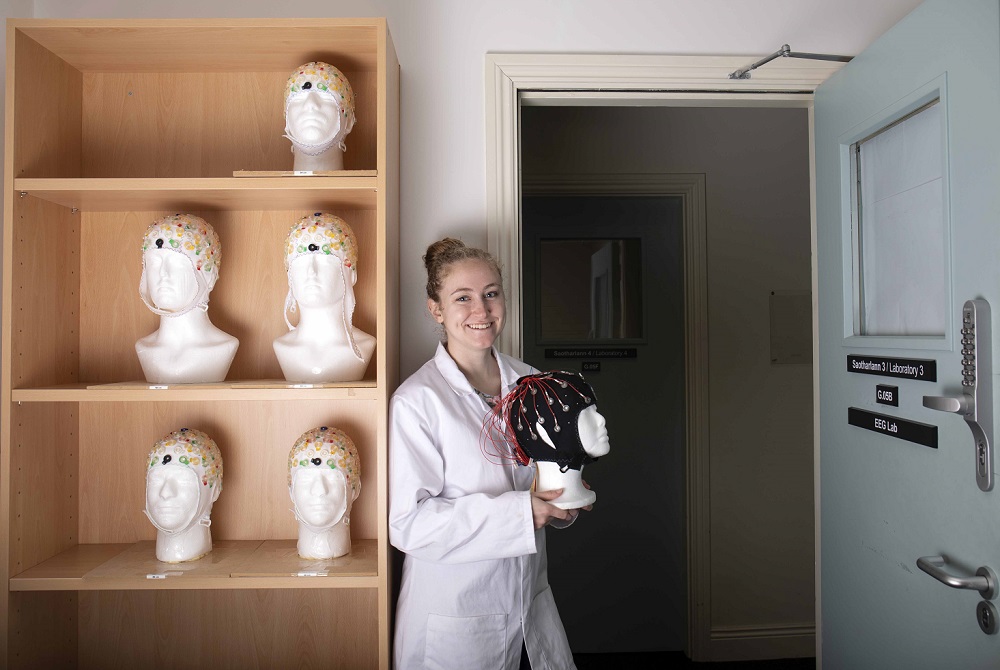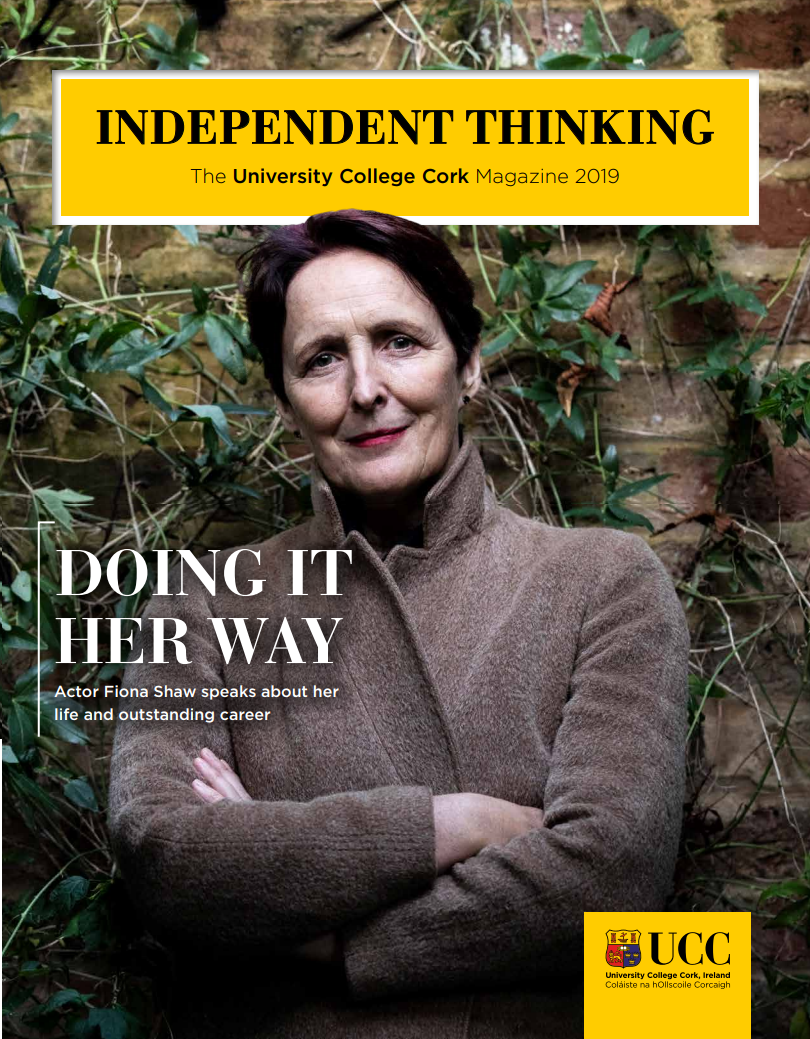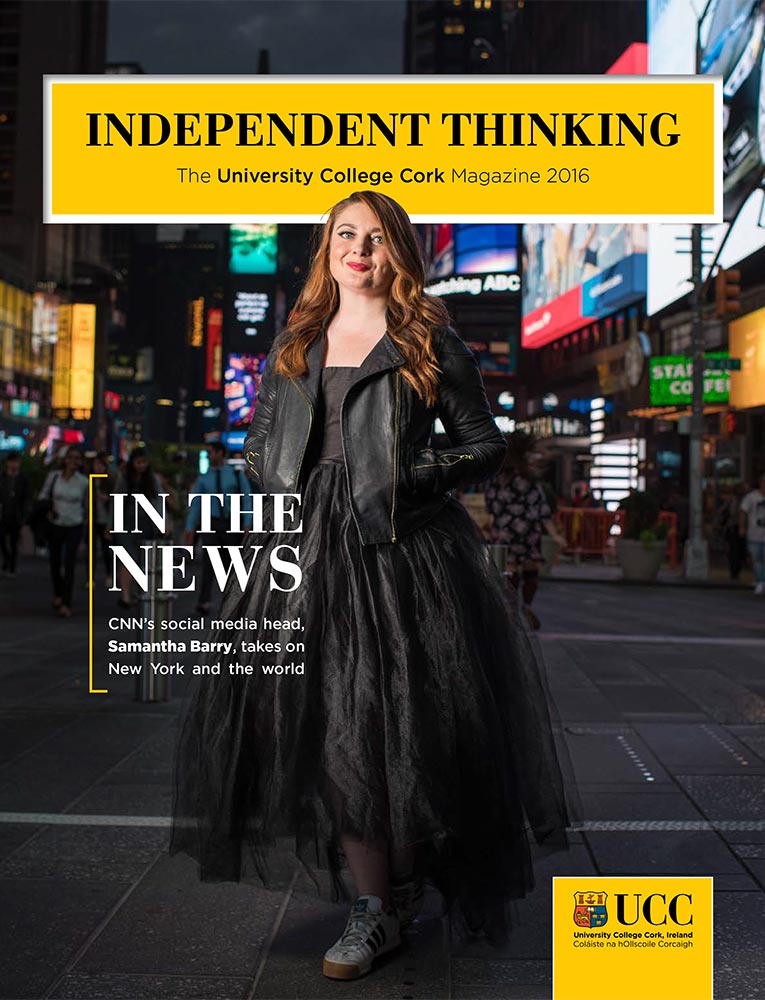Features
- UCC Springboard+: Kieran Egan
- UCC’s new Hub serves as ‘one-stop-shop’ service for 26,000 students
- Interview: Ryan Tubridy chats politics, history and his love of the arts on UCC visit
- UCC Emergency Care Society gets hands-on with life-saving skills
- Fitzgibbon Cup glory for UCC as hurlers beat IT Carlow in thrilling final
- GatewayUCC bridging the gap for research-entrepreneurs
- Pocket-sized brain injury monitor could be a game-changer for infant health
- Future of Irish hockey in safe hands with rising star Hannah
- Dr Eithne Hunt: Healthy habits for body and mind
- From Architecture to Web Development
- Nine APC Microbiome researchers make prestigious ‘highly cited’ list
- UCC honours five exceptional alumni at annual awards ceremony
- UCC spotlights four of its brightest up-and-coming female career scientists
- Rich Ferrie leads an exciting new era for UCC Innovation
- UCC honours its graduates with the official naming of the Alumni Bridge
- New UCC series explains how university research impacts daily life
- UCC's rising sports stars presented with scholarships
- UCC ranked among top universities in Europe for teaching excellence
Times Higher Education Europe Teaching Rankings 2019
- UCC makes Green Flag history…again!
The first university in the world to be awarded a fourth Green Flag
- Blazing a trail
Professor Helen Whelton charts her path to success, from curious dentistry student to global award-winner
- A Summer’s Evening on the Quad hits the right note for Cork charities
The fundraising event is now in its 14th year
- A curious mind
Paul Ross on his love of science, his greatest moments of discovery, and the exciting next chapter at APC Microbiome Ireland
- Mind your microbiome: 9 ways to boost your gut health
In honour of World Microbiome Day
- UCC hosts top wind energy experts at Cork’s largest ever conference
Scientists and engineers gathered to discuss the future of renewable energy
- Lord David Puttnam makes a passionate case for careers in the arts
He features in the latest episode of UCC’s podcast, Plain Speaking
- Funding announced for UCC SFI Research Centres
- Beekeeping makes life sweeter for Cork kids
- Saving Ireland's seals with GPS
- UCC celebrates a stellar year in sport
- Tommy Fleming headlines A Summer's Evening on the Quad
Tickets available now
- UCC ranked as global leader for sustainable social and economic impact
Times Higher Education University Impact Rankings
- Former UCC President Michael Murphy becomes first ever Irish President of EUA
Professor Murphy served as UCC President for 10 years
- MaREI researcher returns from epic adventure in search of blue whales
Dr Ailbhe Kavanagh spent seven weeks in Antarctica
- Doireann Ní Ghríofa among six new members elected to Aosdána at UCC ceremony
Writer Doireann is a UCC alumna
- Former White House drug advisor goes 'inside America’s opioid crisis'
Keith Humphreys is the latest guest on UCC's official podcast, Plain Speaking
- UCC launches Sports Strategy
Pride on our chest, belief in our heart, sport in our bones.
- How Nicole Ryan is powering change after tragedy
Alex’s Adventure
- Brainwave ‘donation’ research offers promise for dementia treatment
Research and innovation
- Full-circle for Paul as UCC extends partnership with Cork City FC
A perfect match
- Praise for The Irish Revolution as 'Atlas' documentary airs on RTÉ
Atlas of the Irish Revolution
- Pastures new
UCC launches its Food Institute
- Making waves at MaREI
Ireland's National Ocean Test Facility opens
- Research spotlight: APC Microbiome Ireland
10 researchers among Highly Cited
- Spin-out success
Atlantia Food Clinical Trials expanding stateside
- Billy Morgan: Pride of Cork
Marking a decade of UCC Sigerson Cup football
- The future is bright for soccer's Captain Fantastic
Ciara McNamara
- The next phase for rugby's rising star
Jack O'Sullivan
- RTÉ to air 'Atlas' documentary
The next step for the Atlas of the Irish Revolution
- Top business talent share their secrets to success
CUBS Conference 2019
- Green roots and flying boots: Cork Chamber project showcases ‘future’ of Cork
Future Forms is part of Cork Chamber’s 200th anniversary celebrations
- CEO and camogie star Mary O'Connor is leading change for women in sport
Moving the goalposts
- Mary Robinson is the first guest on UCC’s new podcast
Plain Speaking is now available to stream
Brainwave ‘donation’ research offers promise for dementia treatment
Prof. Cora O'Neill and Hadley Pfalzgraf explain their research into how specific sounds influence brain activity and impact memory. In conversation with Jane Haynes

Donate your brainwaves.
No, we’re not talking about robots stealing the thoughts from your head, rather an exciting UCC research project that offers promise to those diagnosing and treating dementia.
The research – a Cork Neuroscience Centre collaboration between Professor Cora O’Neill (School of Biochemistry and Cell Biology, Dr Jason Chan (School of Applied Psychology) and Dr Suzanne Timmons (Centre for Gerontology and Rehabilitation) – is an investigation into how specific sounds influence brain activity and impact memory.
Professor O’Neill, Director of the Cork Neuroscience Centre, she explains the rationale behind the research:
“With Alzheimer’s, there is one protein that builds up incorrectly, and what therapies over the past 15 years have tried to do is stop those building up. But it hasn’t worked. So, from my point of view, we have to be more creative.”
Enter Hadley Pfalzgraf from Northwestern University, a Mitchell scholar attending UCC and conducting an MRes postgraduate degree, in the School of Biochemistry and Cell Biology.
“The study has shown that the rhythm of this sound that your brain likes, is helping you to remember things better" - Prof. Cora O'Neill
Hadley previously conducted this research, on young adults in their twenties, with Professor Ken Paller (Northwestern University), to see if sounds could be used to impact neural activity. The study involved fitting participants with a cap fixed with electrodes that monitor the ‘rhythm of the brain’. They were then given a memory test to complete while listening to sounds.
“It worked,” she explains. “It impacted neural activity. And increased theta (brain wave) activity was associated with memory improvement.”
Now, she is collaborating with Prof. O’Neill and the team, to extend her research to older adults. Participants aged 50 and older were chosen for the UCC study, as very early brain changes tend to occur in the 40 to 50 age range. All participants at this stage of the study have a simple memory assessment (Montreal Cognitive Assessment) and have healthy cognition. Later, the study will extend to include people with Mild Cognitive Impairment which can advance to dementia.
Now, for the science!
“When I’m speaking to you, your brain is determining the rhythm of my speech,” explains Hadley.
“The rhythms in the brain are really important and represent a bunch of neurons firing at the same time as one another. It serves to help the brain communicate between areas, and to store different types of information.
“This research is inspired by the fact that, as we age, these oscillations (up-and-down activity in the brain) can change – the frequency that they oscillate at can decrease. So, we’re looking at ways to possibly boost activity at frequencies that might be decreased.”

The testing – which takes about two-and-a-half hours per participant – is carried out in a lab in UCC’s School of Applied Psychology, collaborating with the expertise of Dr Jason Chan. Each participant is fitted with a cap fixed with 128 electrodes, that each read a different data point in the brain every second.
Hadley begins with a test to determine the frequency of sound the participant’s brain responds to best while doing a memory test. The theta frequency of brain waves – generated in the hippocampus, which has been shown to be important for memory – is chosen at this time.
Once the brain’s preferred frequency of sound has been determined, somewhere between three and seven Hertz (Hz), the participant is given a memory test. Before them, on a grid, will appear 30 objects which they need to memorise and re-locate twice.
Throughout, different sounds – including their preferred theta frequency sound – are played. Hadley can then determine if the frequency of sound is causing more activity at the specific frequency within the brain, to improve memory.
“The study has shown that the rhythm of this sound that your brain likes, is helping you to remember things better,” explains Cora.
In addition, the participants have preferred theta frequencies: “There seems to be a trend that six Hz is a sweet spot for the participants,” adds Hadley.
“It’s particularly interesting, because your theta frequency is thought to slow as you age. So, people who are edging towards five Hz might be seeing those cognitive impacts.”
"There may be possibilities – not to cure – but to help people in prevention and to be aware of how they can also help their memory" - Prof. Cora O'Neill
So, what’s the potential impact of this study for people experiencing memory loss?
“This is important for being aware of what can actually influence the systems in your brain,” explains Cora.
"There may be possibilities – not to cure – but to help people in prevention and to be aware of how they can also help their memory.”
“On a very small scale,” adds Hadley, “it could be something as simple as playing these preferred sound frequencies at a very low volume while you’re listening to your grandchildren’s names, or taking these sounds and modulating them for a hospital setting for while a patient sleeps.”
For Cora, the opportunity to collaborate with other departments has been a rewarding process, vividly illustrating the value of working as a connected university.
“It’s bringing together different disciplines: we’re talking to Jason about the psychology and sensory aspect, Suzanne is the clinician working with people, I’m working on the molecular side, and Hadley has done this research before,” she explains.
“It’s made us all talk. And to be able to do this collaboratively in UCC is even better.”
Follow this link for more information on research at UCC.



